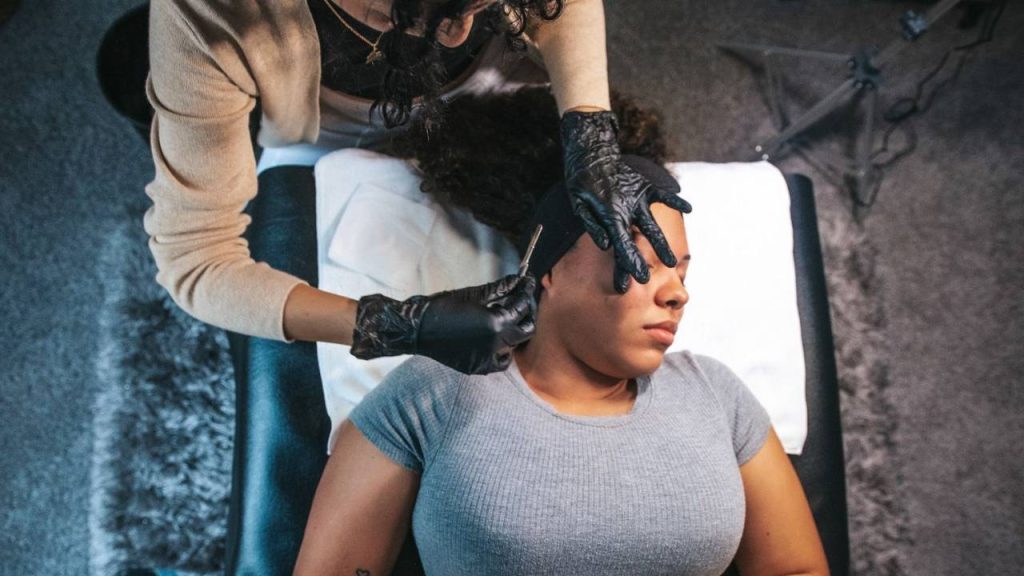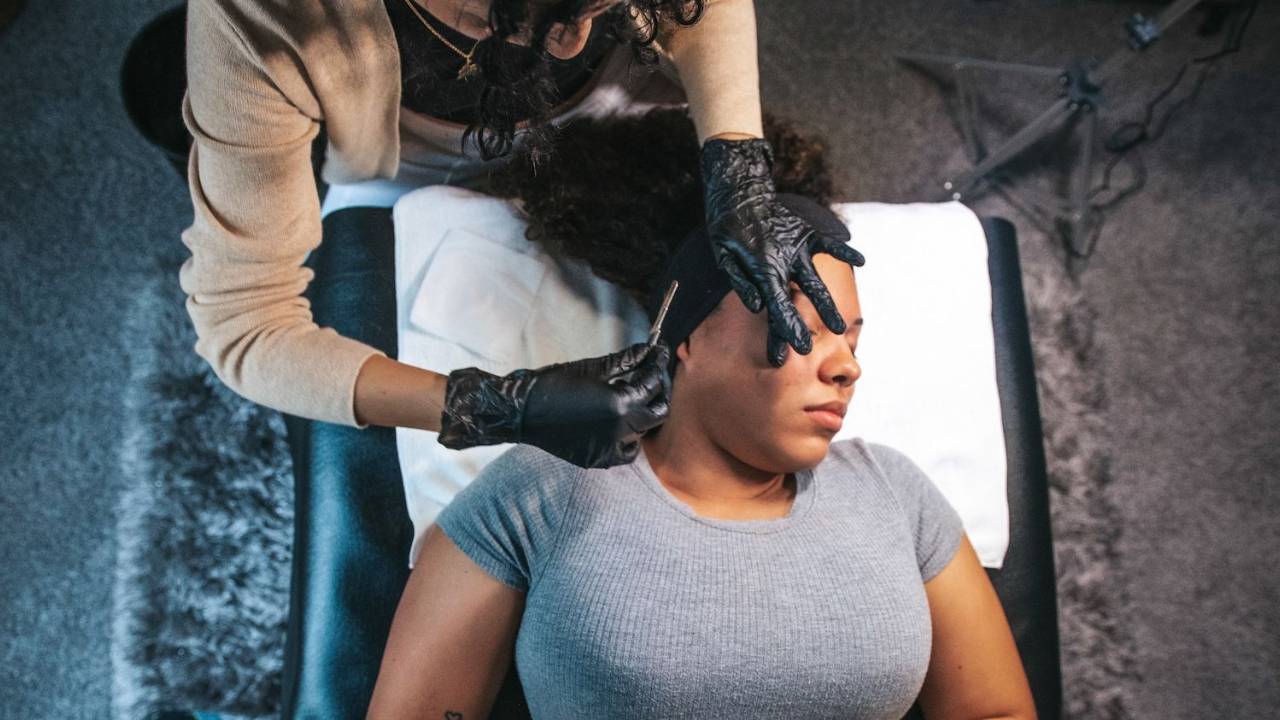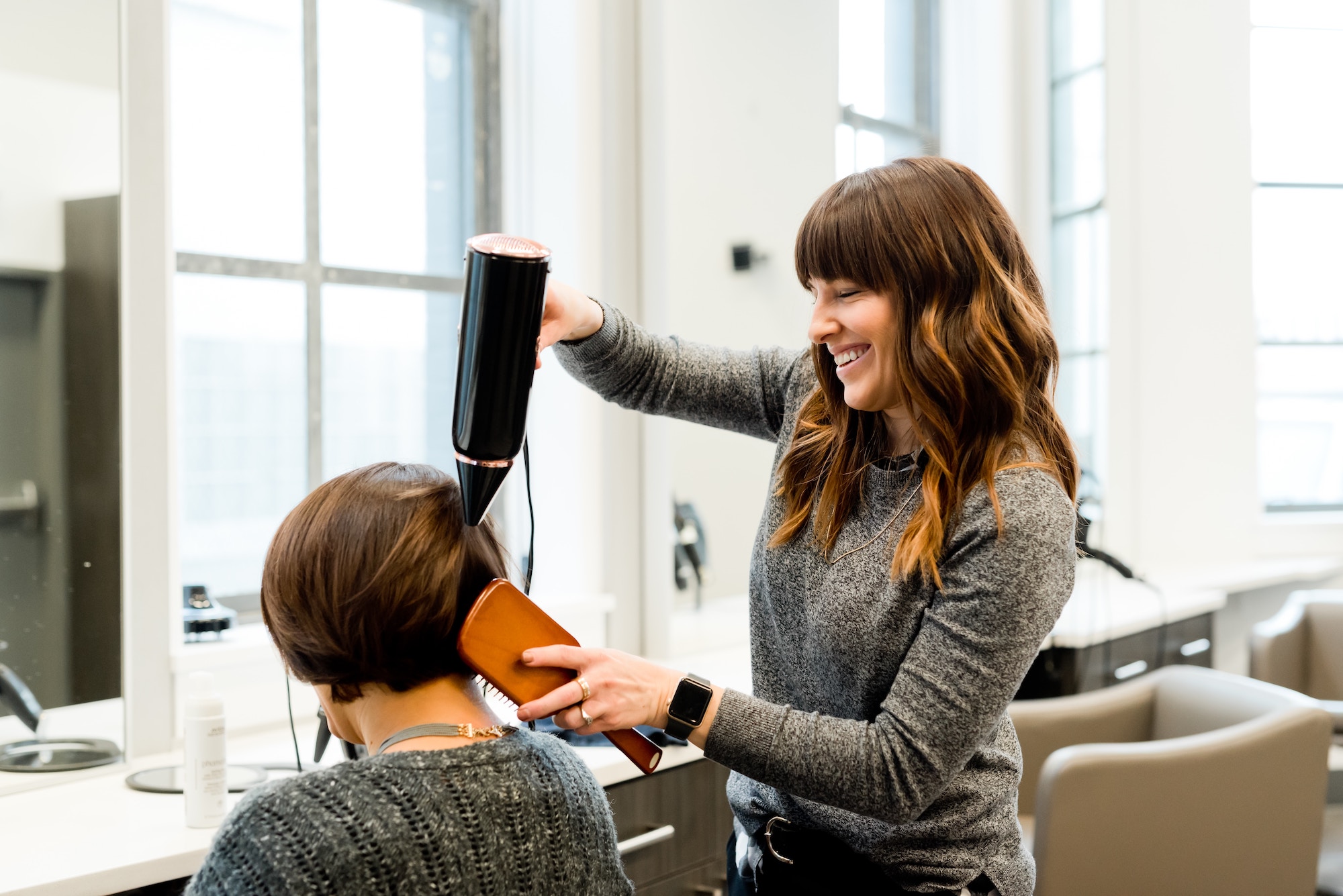
Esthetician vs Cosmetologist: Choosing a Beauty Career
Beginning a career in health and beauty is an exciting time in your life. Choosing the right field for you is more important than you think.
Choosing between becoming an esthetician or cosmetologist sets you on a career path. But the differences aren’t always understood.
We’re getting down to business with these two rewarding but very different specializations.
Let’s get rolling!
The main differences between estheticians and cosmetologists
Before you leap into a training program or course of study, you must understand what you’re signing up for. The primary differences between estheticians and cosmetologists are easy to grasp.
The spaces estheticians work in are different than cosmetologists
Cosmetology studios and salons focus on hair, nails, and makeup. These specialties require equipment other than what’s necessary for estheticians. A thriving run shop has booths for individual professionals, each designed for the modality.
Esthetician spas and salons focus on skin health and well-being. Tools of the trade take up more space, and clients need more privacy. Individual rooms are standard instead of booths. Generally, the layout feels more like a massage studio or medical office than a cosmetology-focused business.
Estheticians are skin-focused, cosmetologists are typically hair-focused
This brings the primary difference between the specialties to light. Estheticians provide skin care services for the whole body. Cosmetologists, by contrast, usually focus on hair care. Both are important, but they have different goals.
Schooling is much different between these two specialists
Gaining the knowledge and certifications or licenses needed to practice vary widely. Part of your decision-making process may include investing resources such as time and money. Also, examine your career goals before you register for your first classes.
Cosmetology school requires a more significant time commitment. Partially due to the range of services, students spend an average of 1,400 to 1,600 hours training. Costs vary as well, from $6,500 to $10,000 pre-licensure.
Future estheticians will spend 600 hours in the classroom, on average. Because they’re more focused on skin treatments, less time is required. Costs vary, too, ranging from $3,000 to $10,000 before state exams.
What services do cosmetologists provide?
Cosmetology is one of the most visible professions in the beauty industry. Nearly everyone needs their hair cut and styled. Beyond that, several specialties contribute to the field.
All makeup artists are cosmetologists
Getting your makeup done for a special event is always exciting. Makeup artists are cosmetologists who focus on artfully enhancing your look. But, beyond the salon, they go on to careers in television and film. They may also work behind the scenes with photographers and fashion designers.
Hairstylists are another common job in cosmetology
Hairstylists may be the most visible because of all. They spend all of their time working with clients to cut, color, and style hair. Chances are you’ve got your go-to stylist, and that’s for a good reason. Clients typically find someone they trust and return to the same beauty salon, sometimes for decades!
Nail technicians are becoming increasingly popular in cosmetology
Nail salons are popping up nationwide, providing quality care for hands and feet. Nail technicians are part of a growth industry. Whether you get your nails done regularly or as a one-time pampering session, you turn to them.
Barbers are even considered cosmetologists
Barbers traditionally work to cut, style, groom, and shave men and boys. The perfect straight razor cut or shave is an art form, and men love it. While there are specific barbering schools, they’re still considered cosmetologists by licensing boards.
What services do estheticians provide?
Estheticians provide services directed towards skin health and wellness. They provide everything from nourishing facials to resurfacing and other advanced treatments. Beyond that, they also consider educating clients on proper skin care an integral part of their profession.
Hair removal is common in esthetician work
Many estheticians work with clients who have concerns about unwanted body hair. Waxing and dermaplaning are common approaches. Anywhere unwanted body hair springs up, they’re trained to help!
Eyebrow laminations, lash lifts, and even permanent makeup fall under this umbrella too. If you’re unsure that your esthetician offers a service, give them a call or check their website!

Chemical peels are popular among estheticians
Facials and chemical peels are a popular service offered by estheticians. Treating everything from sun damage to acne, they’re essential to maintaining a glowing complexion. Because of the potential for complications, these should only be performed by licensed estheticians.
Advanced skincare treatments such as microneedling and laser hair removal
Other treatments estheticians offer include things like microneedling and laser hair removal. These advanced treatments require special training and certification. Microdermabrasion is another popular approach to resurfacing the skin.
In some states, only medical doctors or dermatologists can perform laser treatments.
Bosses in Beauty is here to support and help you grow your beauty business!
There’s no wrong choice when pursuing training in your future beauty career. If you want to help clients struggling with skin concerns, welcome to the team! Aside from all your new skills, you’ll want to begin planning your business as soon as possible.
At Bosses in Beauty, we’ve leveraged our esthetician experience to help you. Starting a new path can be scary, and we’ve got resources to help. When we started out as new business owners, we had to learn everything on our own.
Check out our website for courses and information about building your beauty empire!

The
6-Figure Beauty Business Blueprint
An 8-week live program for solo estheticians who want to attract more clients and hit their first six-figures using our proven 6-figure blueprint.

Build Your
7-Figure Team
An 8-week live program for beauty professionals ready to hire, lead and scale their team to seven figures and beyond.


